Optimizing Asset Performance Management for State and Local Government Organizations

In an era where asset-intensive state and local government organizations face mounting pressure to maintain critical infrastructure while balancing limited budgets and increasing public expectations, implementing robust asset management systems has become essential. This content outlines how Hexagon's Asset Performance Management solution (HxGN APM) can revolutionize public sector asset management by enabling risk-based decision-making throughout the entire asset lifecycle, seamlessly aligning operational objectives with sustainability and resiliency goals while driving continuous improvement. I’ll examine the specific government organizations that would benefit most from this technology, key use cases, implementation considerations and the measurable outcomes that make this solution invaluable for optimizing maintenance spending, reducing operational risks and strengthening overall financial performance.
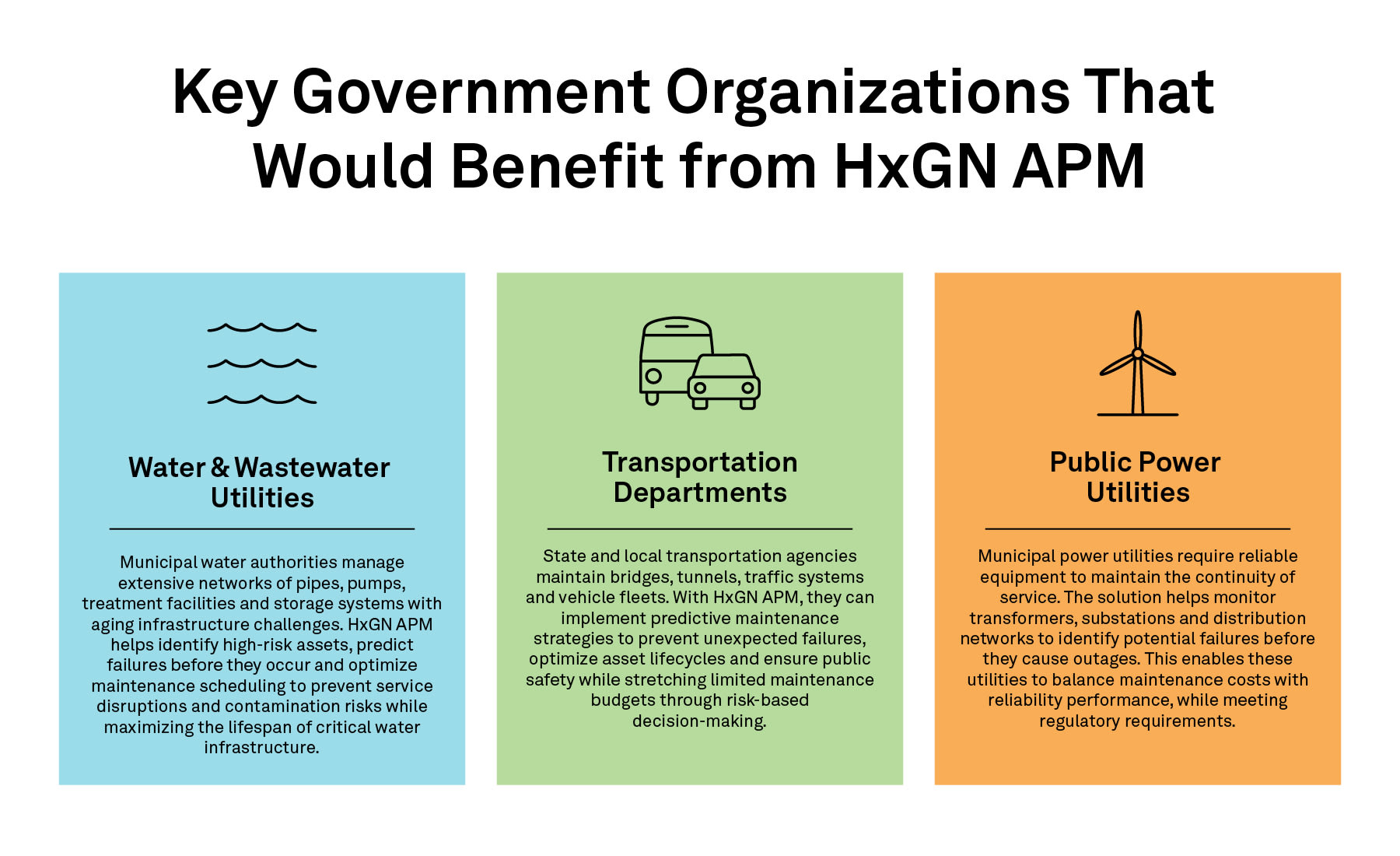
Additional Beneficiaries
- Parks & Recreation Departments - Managing facilities, playgrounds and specialized equipment with safety implications
- Public Works Departments - Maintaining diverse assets from HVAC systems to flood control infrastructure
- Public Housing Authorities - Managing building systems and preventive maintenance programs
- Port Authorities - Maintaining critical loading equipment, security systems and marine infrastructure
- Waste Management Agencies - Optimizing fleet management and processing equipment maintenance
It is surprising that so many asset-intensive organizations remain in the early stages of APM adoption; only one-third of respondents indicate their APM program is mature." - ARC Advisory Group, The State of APM In Industry
Government organizations typically operate with strict budget constraints while managing assets that directly impact public safety and quality of life. The ability to quantify asset risk, predict failures and optimize maintenance spending makes HxGN APM particularly valuable in the public sector, where fiscal responsibility and service reliability are paramount.
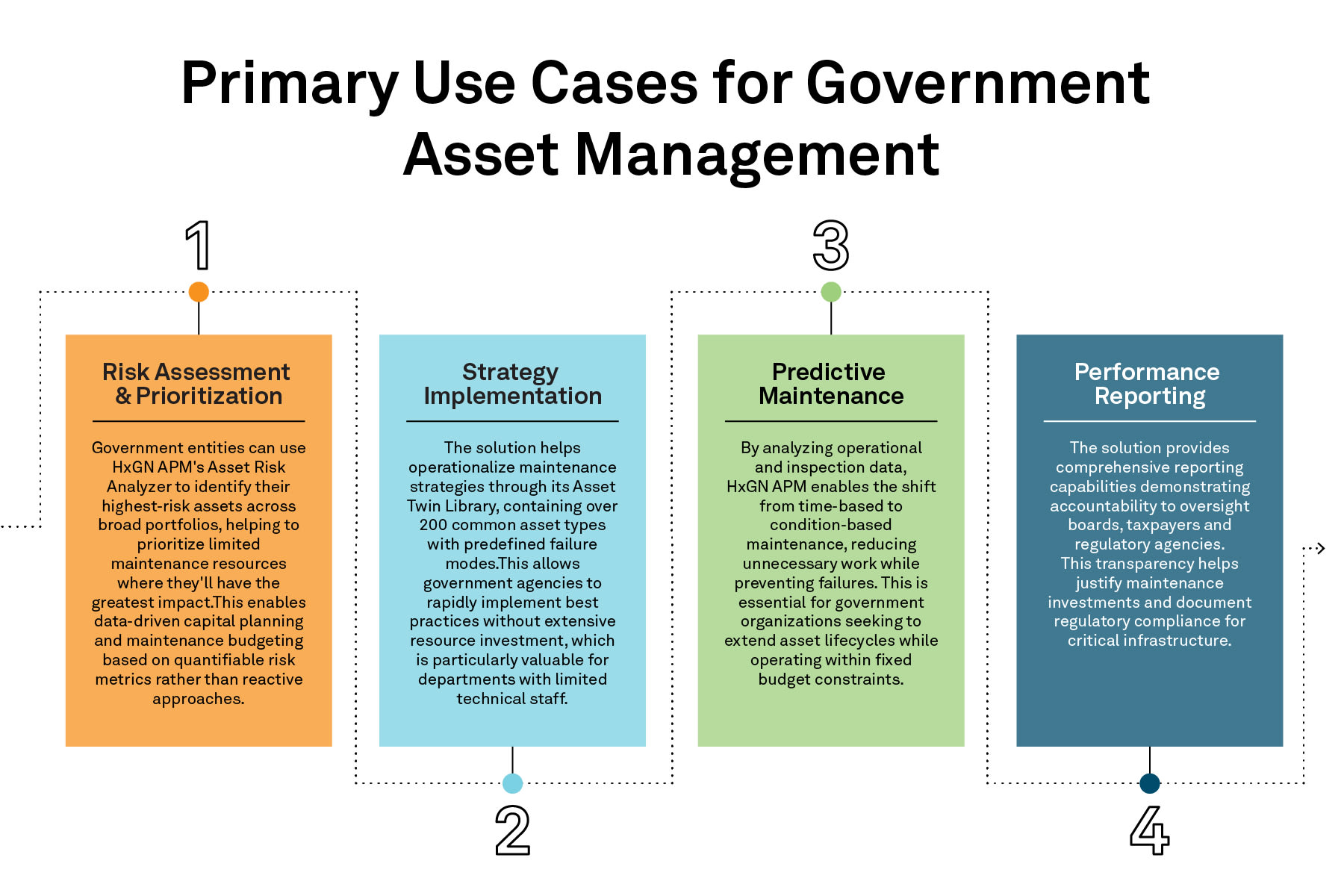
Current Estimated Maintenance Approaches
Hexagon's observations of public sector entities highlight a significant gap in government infrastructure maintenance. Most government entities primarily use reactive or basic preventive methods. This lags the private sector, which has widely adopted more sophisticated asset management solutions. There is substantial room for advancement in public sector approaches. The maintenance maturity spectrum progresses from reactive and basic preventive methods to advanced strategies like condition-based, predictive and prescriptive maintenance which leverage data analytics. Transitioning to more sophisticated maintenance offers significant operational and financial benefits for government entities, including extended asset lifecycles, reduced emergency repairs and optimized resource allocation, improving outcomes for constituents.
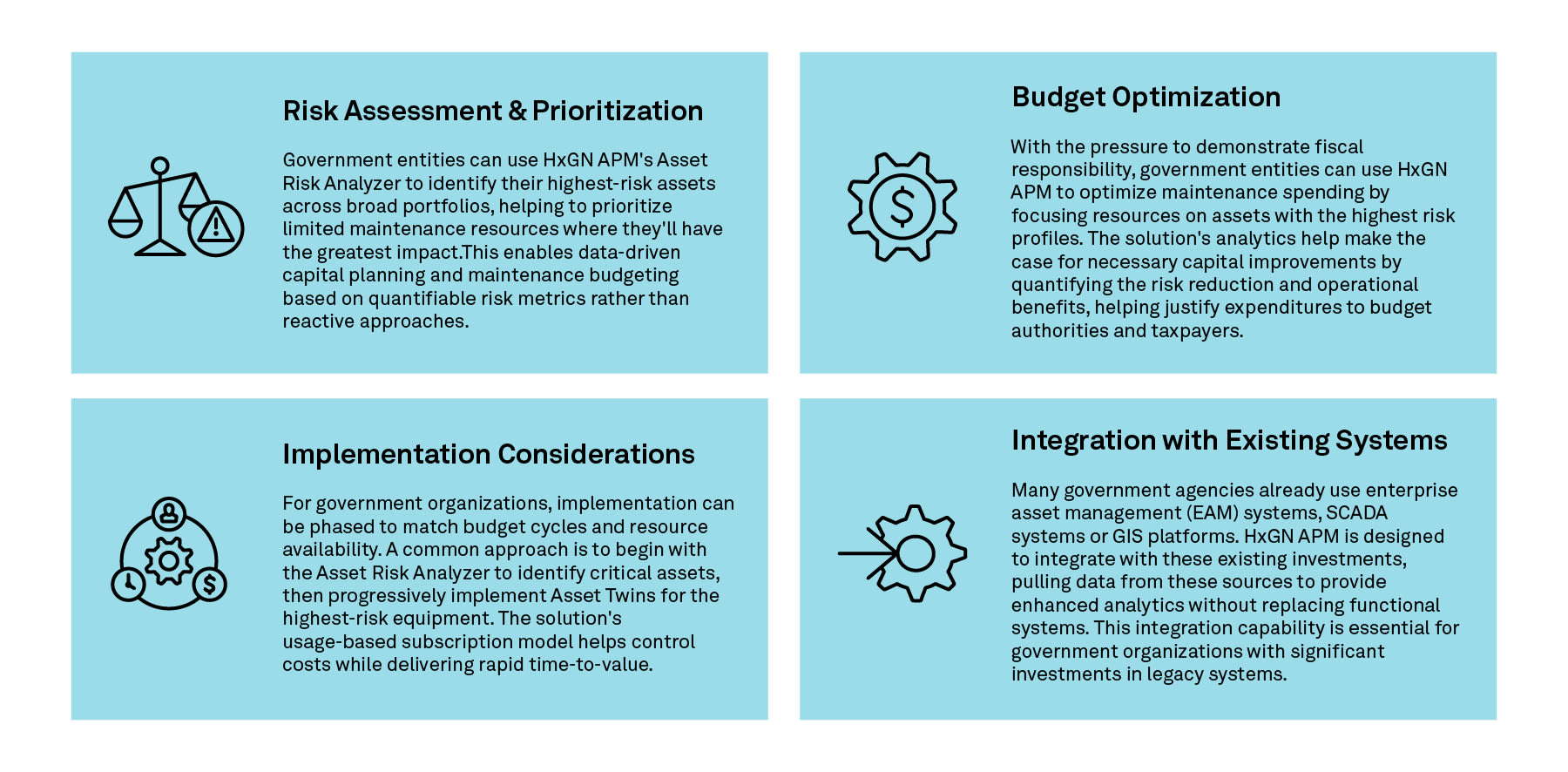
The Asset Twin Approach for Government Applications
The Asset Twin concept is particularly valuable for government organizations that may lack extensive reliability engineering resources. Rather than requiring complex Reliability Centered Maintenance (RCM) or Failure Modes and Effects Analysis (FMEA) processes from scratch, HxGN APM's Asset Twin Library provides pre-built models that can be customized to specific operating contexts.

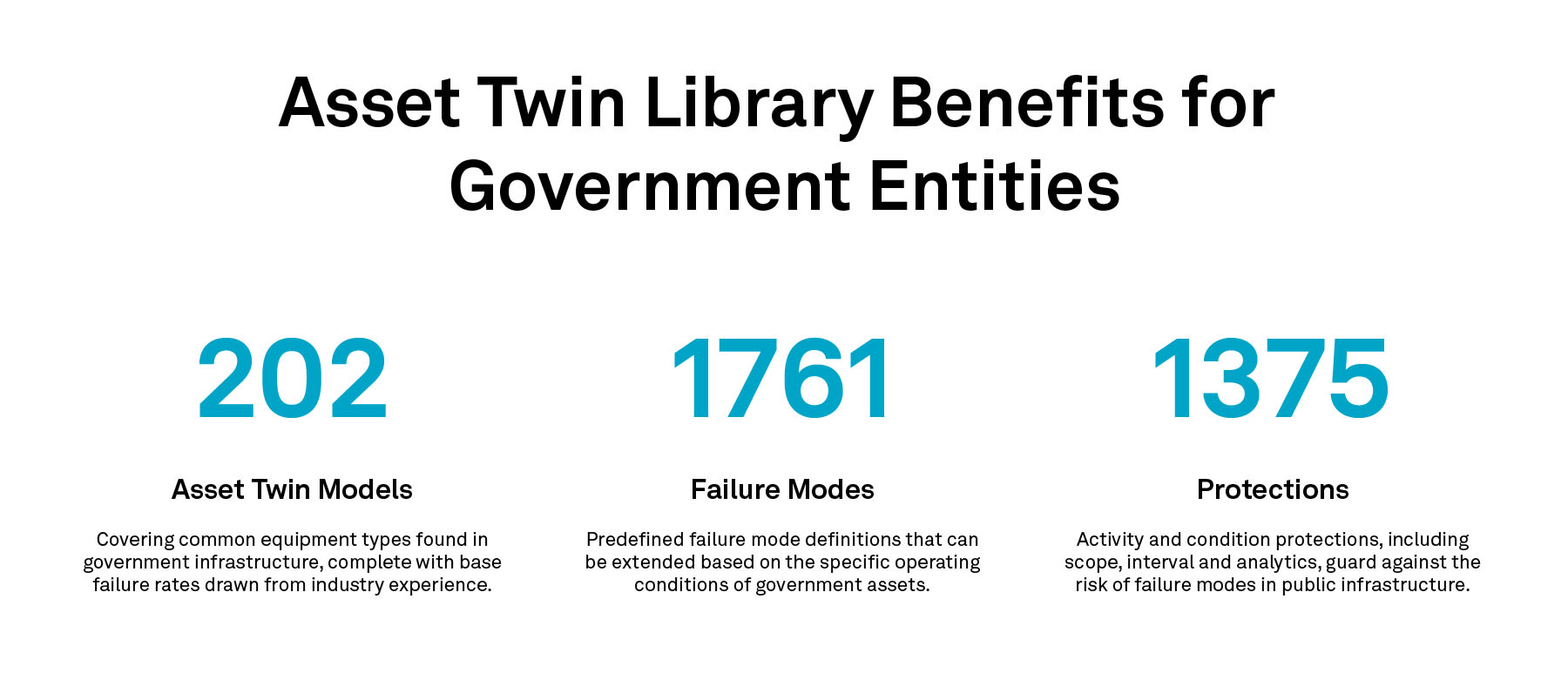
Measurable Outcomes
Expected Performance Improvements for Government Organizations
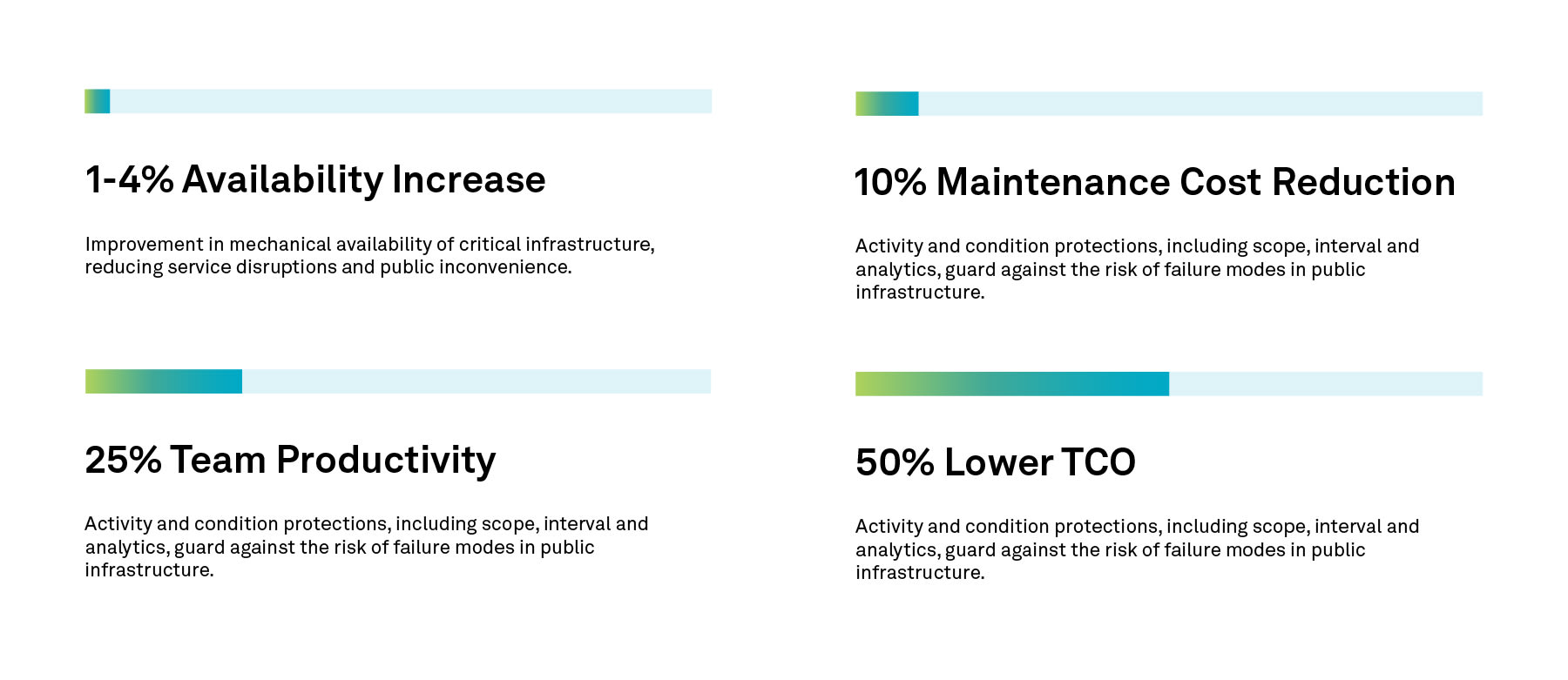
These improvements align with common government objectives of improving service reliability while controlling costs. By implementing HxGN APM, government organizations can demonstrate responsible stewardship of public resources while enhancing critical infrastructure reliability.
Conclusion
State and local government organizations face unique challenges in maintaining critical infrastructure that directly impacts public safety and quality of life. HxGN APM offers a comprehensive solution that helps these organizations transition from reactive maintenance to predictive and prescriptive approaches, even with limited technical resources.
By implementing HxGN APM, government entities can:
- Quantify and mitigate risk across diverse asset portfolios
- Optimize maintenance spending to focus on critical assets
- Extend asset lifecycles while improving reliability
- Document compliance with regulatory requirements
- Demonstrate responsible stewardship of public resources
The result is improved infrastructure reliability, enhanced public safety and optimized use of limited maintenance resources – all crucial objectives for modern government organizations facing increasing demands with constrained budget.
All statistics and implementation outcomes referenced in this content are documented in the published sources or from verified Hexagon customer case studies. Our presentation on HxGN APM for government organizations draws on verified data and research from the following authoritative sources: Infrastructure Assessment Data -American Society of Civil Engineers (ASCE) Infrastructure Report Card - Comprehensive analysis of government infrastructure conditions and funding gaps; Maintenance Optimization Case Studies-U.S. Department of Transportation Federal Highway Administration - Lifecycle cost analysis for critical transportation assets; Risk Mitigation Frameworks-Environmental Protection Agency (EPA) Asset Management Guidelines - Best practices for water utility asset management. Additional Sources: National Association of State Facilities Administrators (NASFA), Government Finance Officers Association (GFOA), capital planning best practices and direct interviews with state and municipal asset managers.